
Laura Pin
Assistant Professor, Faculty of Arts, Wilfrid Laurier University
Dr Pin's research examines public policy, participatory democracy and housing. She uses community-engaged research to understand the lived experiences of policy decisions, especially those often excluded from decision-making processes. Dr. Pin grew up in Hamilton, ON., and obtained her PhD from York University in political science. Prior to her position at Wilfrid Laurier University, she was a postdoctoral researcher at the Community Engaged Scholarship Institute at the University of Guelph. She has worked as a policy consultant with municipal and federal levels of government, and many community partners. Dr. Pin is currently involved in three SSHRC funded research projects concerning housing policy, civic engagement and municipal politics.
Less ![]()
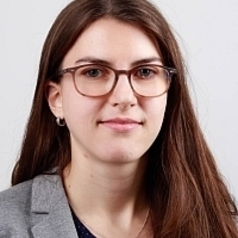
Laura Scherer
Assistant Professor, Institute of Environmental Sciences, Leiden University
Laura Scherer is an assistant professor at Leiden University's Institute of Environmental Sciences (CML). She is interested in research on impact assessment and prioritization related to biodiversity, water, climate, and animal welfare, with applications especially in the food sector. She contributed to reports of FAO and UNEP and currently works in the Global Guidance for Life Cycle Impact Assessment Indicators and Methods (GLAM) project hosted by UNEP. She leads a work package on climate and health impacts of shifting lifestyles within the Horizon 2020 project 1.5° Lifestyles and co-leads the Horizon Europe project BAMBOO, which focuses on biodiversity impacts of non-food biomass along global supply chains. Her team's main research contribution to the BAMBOO project is the development of impact assessment methods for functional diversity.
Professional experience
Laura obtained her PhD from ETH Zurich in 2016. During her doctoral studies, she analysed the environmental impacts of water consumption and degradation at regional and global scales. She applied her research to the agriculture and energy sectors. Afterwards, as a postdoctoral researcher at VU Amsterdam, she coordinated the European research project VITAL where she evaluated the opportunities and constraints for sustainable intensification of agriculture in Europe.
Less ![]()
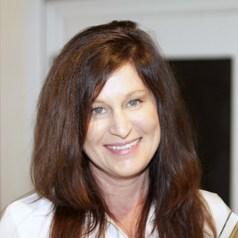
Laura Scholes
Associate Professor and ARC Principal Research Fellow, Australian Catholic University
Master of Arts (Justice Studies), Faculty of Law, QUT.
PhD (Education), The University of Queensland
Less ![]()

Laura Serra
Postdoctoral Research Officer, London School of Economics and Political Science
Laura Serra is a Research Officer at the Electoral Psychology Observatory at the LSE. Laura’s research focuses on how demographic characteristics, particurlarly age and generations, affect political behaviour and attitudes. Before joining the EPO, Laura was a Lecturer in Politics and Research Methods at Royal Holloway, University of London, where she also completed her PhD in Political Science. Her doctoral research examined the age-gap in British partisanship through the perspective of intergenerational value change, the expansion of higher education, the effect of targeted partisan appeals, and the increasingly delayed transition into adulthood.
Less ![]()

Laura Sochas
Leverhulme Early Career Fellow, School of Social and Political Science, The University of Edinburgh
Laura Sochas' research focuses on how power, institutions, and social policies affect health inequalities. She takes a critical feminist stance, engaging with theories such as intersectionality and Reproductive Justice. Her work has been published in high-impact journals such as Social Science & Medicine, the Socio-Economic Review, Demography, Health Policy & Planning, and BMJ Global Health.
Her Leverhulme-funded project is titled: “Policing Reproduction via Migration and Family Policies: Stress, Stigma & Health”. Through this research, she is exploring how migration and family policies in Europe affect parents’ rights to have children and to parent with dignity, and how this affects their health, formulating a quantitative approach to Reproductive Justice.
She has previously published on topics such as: collective bargaining and health inequalities; researching intersectionality using quantitative and mixed methods; modelling the indirect mortality effects of epidemics; how health service environments and health facility rules affect maternal health inequalities; how interviewers affect the likelihood of reporting an abortion.
Laura obtained her PhD in Demography from the Department of Social Policy at LSE (2020). She holds an MSc in Social Research Methods (2016) and a Masters in Public Administration (2011) from LSE, as well as a BA in Philosophy, Politics and Economics (2007) from the University of Oxford. Prior to her PhD, she worked as a consultant on public health programmes in African and South Asian countries, for clients such as UKAID, the Gates Foundation, and UNFPA.
She is happy to be contacted in relation to the following topics: health inequalities; Reproductive Justice; collective bargaining and trade unions; maternal and reproductive health in the Global South.
Less ![]()
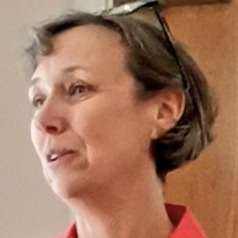
Laura Spence
Professor of Business Ethics, Royal Holloway University of London
Laura J. Spence is a Professor of Business Ethics in the Department of Human Resource Management and Organisational Studies, Royal Holloway, University of London. She has previously held the posts of Associate Dean (Research) supporting the School of Business and Management and the School of Law and Social Sciences, Director for the Centre for Research into Sustainability and School Director of Impact.
In 2023, Professor Spence was conferred the honour of Fellow of the Academy of Social Sciences. She was a REF2021 Sub-Panel Member for Business and Management Studies. At the University of Oxford, Professor Spence is an International Research Fellow at the University of Oxford Centre for Corporate Reputation, and Visiting Fellow at Kellogg College.
Laura's research interests relate to a wide range of management studies issues, in particular, critical corporate social responsibility, small business social responsibility, supply chain sustainability and a critique of Creating Shared Value. She uses moral and social theory in her research, favouring qualitative and conceptual studies. Laura has a particular interest in the place of gender and feminist perspectives in business ethics and corporate social responsibility research and practice. She is developing work on SMEs and climate action, particularly in relation to NetZero.
Less ![]()
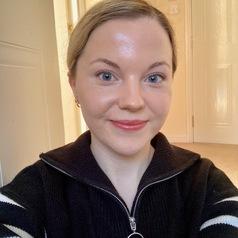
Laura Stewart
Lecturer, The University of Edinburgh
Laura Stewart is originally from the Isle of Lewis. She graduated with an Honours degree in Mathematics and Statistics from the University of Glasgow, and then obtained her PhD in Statistics within the same department. After completing her PhD, she has worked as a lecturer in Statistics and is currently working for the University of Edinburgh. During her studies she had several internships working on statistical projects in the Economic Development department of Comhairle nan Eilean Siar. These projects used data on the local population, businesses and economy to inform business support planning.
Her other research interests range from theoretical probability to more applied topics within Sports Science, Clinical Trials and working with educational data in the context of widening participation in Higher Education.
Less ![]()

Laura Tensen
Post-doctoral Fellow, University of Copenhagen
My great passion has always been nature conservation. I started my career off by studying wildlife management, followed by an MSc in ecology. During my BSc I was involved with a project on jaguar predation in Brazil, the impact of deforestation on mammal diversity in Paraguay, and the effect of habitat fragmentation on lynx distribution in Poland. During my MSc I changed my focus to Africa, a territory yet unknown to me. I initiated a study on the population structure of leopards in South Africa, and became involved with a project on the genetic uniqueness of West-Central African lions. This inspired me to move to South Africa, where I started a PhD on the conservation and genetics of African wild dogs.
For my doctorate I mainly studied the impact of habitat fragmentation on the genetic viability of wild dogs in Zimbabwe and South Africa, using mtDNA and microsatellite markers. During this time, I met many biologists in South Africa with the same interests as me, which led to new ideas and fresh projects. These formed the foundation of a postdoctoral position at the Centre for Ecological Genomics and Wildlife Conservation, University of Johannesburg. After these fruitful years I moved to Germany, for a postdoc position at the University of Koblenz, followed by a position at the University of Copenhagen. My research mainly focuses on the interface between carnivore ecology and landscape genomics, with a particular interest in identifying the effects of anthropogenic stresses such as hunting and habitat loss.
I have recently also gained an interest in using colour polymorphism to test evolutionary genetic theories, including the influence of heterozygosity deficiency, as well as in hybrid swamping and speciation. The impact of hybridization in the wild is still poorly understood, even though it is an important evolutionary force with significant implications for species conservation. Together with collaborators, we have developed genetic guidelines for conservation translocations, to provide managers with a simple decision-tree on how to adopt the best strategy when the aim is to maintain intraspecific genetic variation.
Less ![]()
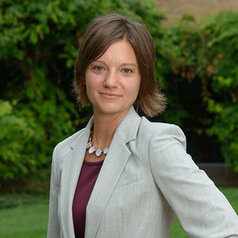
Laura Voith
Associate Professor of Applied Social Sciences, Case Western Reserve University
Dr. Voith has worked over the last decade to address violence against women and youth through counseling, agency- and community-based coordination efforts, and research.
Her research focuses on the prevention and intervention of violence against women by working with boys and men to uncover the etiology of violence though the lens of trauma and health disparities. Her research shows that exposure to adversity and violence in family- and community-settings in childhood and adolescence are significant factors that, if gone unaddressed, can lead men to perpetrate violence in adulthood. Dr. Voith’s research aims to inform the development and evaluation of violence prevention programs with at-risk youth and improve batterer intervention programming with men.
Less ![]()
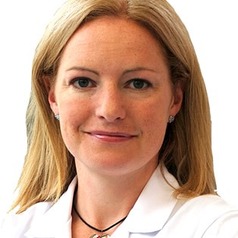
Laura Waters
I am an academic scientist, researching pharmaceutical formulations, analytical techniques and the development of alternatives to animal testing.
Less ![]()

Laura Whitworth
Group Laboratory Manager, Department of Medicine, University of Cambridge
I am a molecular biologist who studies the interaction of infectious diseases with human genetics. Our focus is on trying to understand why some individuals get infected with tuberculosis, while others are able to clear the infection.
I started my scientific career as a marine biologist, then moved into human genetic analysis of various diseases. When I joined Lalita Ramakrishnan's lab, it was the perfect combination of fish and human immune system biology.
Less ![]()

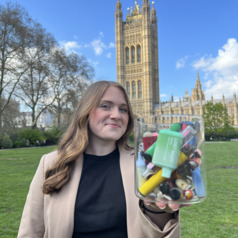
Laura Young
PhD Researcher, Environmental Sciences, Abertay University
Laura Young is an award winning climate activist, environmental scientist, and ethical influencer. She began her PhD between Abertay University and the University of Dundee in 2022 as a Hydro Nations Scholar in community engagement and climate resilience.
She has a First Class honours degree in Geography and Environmental Science from the University of Dundee, and a Masters with Distinction in Environmental Protection and Management from the University of Edinburgh. As part of her studies she spent a year at the University of Guelph, Canada, before setting off to complete her dissertation working on mangrove projects in Akumal, Mexico.
Laura can be found across all social media platforms at @LessWasteLaura
Less ![]()

Laura A. Henry
Associate Professor of Government and Legal Studies, Bowdoin College
I specialize in contemporary Russian politics, in particular NGOs, social movements, and state-society relations in Russia. Much of my work has been focused on environmental and natural resource issues.
Less ![]()


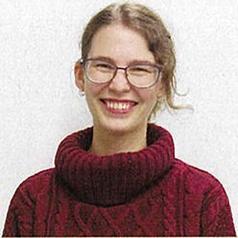
Laura Emily Clark
Lecturer in Japanese, University of New England
Laura Emily Clark is a Lecturer in Japanese at the University of New England. Her research explores contemporary Japanese literature, gender, and Japanese authors in the transnational literary sphere. Her co-authored paper with Kenko Kawasaki has been published in Japanese Studies (2022) and her work on Covid-19 short fiction was published in Gender, Place and Culture (2022). She received her PhD from the University of Queensland on Japanese gender ideals in Haruki Murakami's fiction. She received the Mariko Bando Fellowship from Showa Women’s University in 2020.
Less ![]()

Laura Gomez Tovar
Researcher on agroecology, organic agriculture and local markets, University of Chapingo
Engineer in Agroecology from the Autonomous University of Chapingo. Master's degree in “Science, Society and Technology” with a specialization in “Innovation Systems and Ecological and Social Change” at Roskilde University and Aalborg University in Denmark. Researcher professor of the Department of Agroecology and founder researcher of the Interdisciplinary Research Center for integral Rural Development (CIIDRI) of the Autonomous University of Chapingo. Part of the team founder of the Chapingo´s Organic Local Market (Tianguis Orgánico Chapingo) and the Mexican Network of Local Organic Markets. More than 20 books published, some are: Citricultura orgánica con enfoque agroecológico: un modelo exitoso en el Norte de Veracruz (CEDRSSA, 2022), Guía agroecológica para la producción de naranja orgánica (UACh, 2021 y 2017), Agricultura Orgánica: Bases Técnicas (UACh, 2017). Biopreparados vegetales y minerales para el manejo de plagas y enfermedades en la agricultura ecológica (UACh, 2023 y 2013) y Desafíos de la Agricultura Orgánica. Certificación y Comercialización (Mundi Prensa, 1999 y 2001).
ORCID: https://orcid.org/0000-0002-8588-4436
Researchgate: https://www.researchgate.net/profile/Laura-Tovar-5
Less ![]()
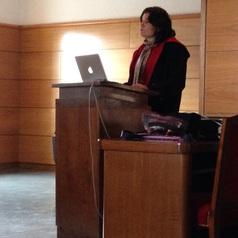
Laura Jiménez Ortega
Profesora del Departamento de Psicobiología y Metodología en Ciencias del Comportamiento, Universidad Complutense de Madrid
Profesor Contratado Doctor del departamento de Psicobiología en la Universidad Complutende de Madrid. Doctora en Neurociencias por la “International Graduate School of Neuroscience” de la “Ruhr- Universität-Bochum” (Alemania). Dicho doctorado lo realizó, gracias a la adjudicación de una beca-proyecto por el IGSN dentro del programa Marie Cuirie Actions, que incluía también financiación como investigador principal. Realizó su tesis doctoral sobre comportamiento y percepción visual en aves. Previamente obtuvo el título de licenciada en Psicología por la UCM y estuvo de estancia en la “University College of London”, donde realizó labores de investigación. Ha trabajado en diversos temas de investigación dentro del área de la Neurociencia, tanto en el área de percepción visual y comportamiento animal como en torno al cerebro y la cognición humana. En la actualidad sus principales áreas de investigación son: el estudio de las interacciones entre procesos cognitivos y emociones, procesamiento subliminal del lenguaje y las emociones y los factores psicológicos y emocionales que afectan a la salud. Ha formado parte de diversos comités científicos organizadores de conferencias y cursos de verano. Es profesora de varios masters y títulos propios en el área de la salud y de la etología animal, en la Universidad Complutense de Madrid y en la Universidad Autónoma de Madrid. Es autora y coautora de diversas publicaciones en revistas científicas internacionales de prestigio, en su mayoría dentro el primer cuartil de su categoría, apostando por la calidad de las publicaciones. Ha impartido diversas ponencias y realizado participaciones en congresos, cursos y conferencias tanto nacionales como internacionales y ha realizado también trabajos y actividades de divulgación.
Less ![]()
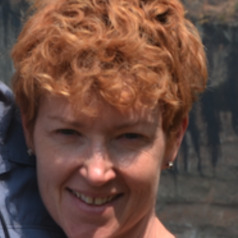
Laura M. MacLatchy
Professor of Anthropology, University of Michigan
I am a paleoanthropologist interested in understanding the relationship between biological form and function, with research foci on primate locomotor evolution, and hominoid (ape and human) origins. Most of my field work has been conducted at 19-21 million-year-old sites in northeastern Uganda, which record evidence of the earliest known fossil apes.
The arboreal habitat of primates poses unique challenges, including substrate gaps and complex and unstable supports, which have led to the evolution of diverse forms of locomotion. Although humans are terrestrial, we still bear the hallmarks of prior arboreal specializations. A major evolutionary event among our hominoid relatives was the adoption of frequent upright postures (orthogrady) and suspensory (below branch) behavior from more monkey-like branch walking. These novel behaviors opened new niches, and selected for a body with a stable lower back that was (arguably) modified for habitual upright posture and bipedality in one hominoid group, the human lineage. The investigation of the locomotor adaptations of our ape predecessors, and the nature of their behavioral transitions, which also include dietary and body size changes, is a centerpiece of my research program. In order to test hypotheses generated from paleontological studies, I also study the locomotion of wild chimpanzees in the Kibale Forest, Uganda.
Less ![]()
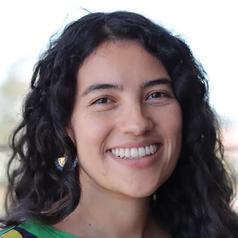
Laura Melissa Guzman
Assistant Professor of Biology, USC Dornsife College of Letters, Arts and Sciences
The overarching goal of my research is to develop statistical and computational methods to leverage large biodiversity datasets to learn about ecological processes.
While we know that the distribution of some species is changing, it is actually very difficult to make reliable inferences as to which species are declining and by how much from the often messy and complex historical and spatial datasets that we have to work with — for example, historical museum records, where species occurrences are aggregated from studies with different sampling procedures. In order to address this gap, my research focuses on determining if and how statistical models can be applied to historical records without yielding biased trends. In my research I also apply these statistical models to determine how the distribution of pollinators has changed through time, where museum records provide lots of information. I am also interested in determining which drivers (e.g. pesticide use, climate change, land use change, etc.) are causing the most decline of the most pollinator species.
Another aspect of my research is to understand the processes that shape communities, for example I have combined experiments and modelling to understand how the structure of body size in a community affects the stability of food webs. In more recent work, I used large-scale simulations and machine learning to identify the signal of metacommunity processes in ecological time series.
Less ![]()
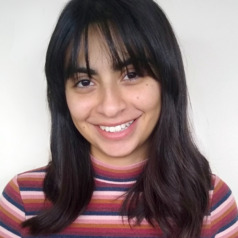
Laura Perez Gonzalez
Research Assistant, School of Social Work, Toronto Metropolitan University
Laura Perez Gonzalez is a research assistant in the School of Social Work at Toronto Metropolitan University. Her research focuses on education, immigration, women’s empowerment, and their intersectionalities in the
experiences of youth.
Less ![]()
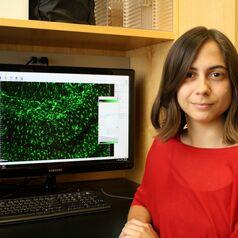
Laura Trujillo Estrada
Profesora Ayudante Doctora. Departamento de Biología Celular, Genética y Fisiología, Universidad de Málaga. Centro de Investigación Biomédica en Red en Enfermedades Neurodegenerativas (CIBERNED). Instituto de Investigación Biomédica de Málaga (IBIMA), Universidad de Málaga
En 2005 me uní al grupo de investigación de la Dra. Gutiérrez, como alumna interna, en el Departamento de Biología Celular de la Universidad de Málaga (UMA), perteneciendo al CTS-950 de la Junta de Andalucía (NeuroAD), al CIBER de enfermedades neurodegenerativas (CIBERNED) y al Instituto de investigación biomédica de Málaga (IBIMA).
En 2009 obtuve la Licenciatura en Biología consiguiendo el premio extraordinario de licenciatura de la Facultad de Ciencias (UMA) y el primer premio de los premios nacionales a la excelencia en el rendimiento académico universitario (Ministerio de Educación). En octubre de 2010 conseguí una beca predoctoral FPU (Ministerio de Educación) para la realización de mi Tesis doctoral y en 2015 obtuve el título de doctor con mención internacional por la UMA. Mi tesis doctoral trató sobre la caracterización de modelos transgénicos de la enfermedad de Alzheimer para la búsqueda de biomarcadores de la enfermedad. Fruto de uno de los trabajos publicados de mi tesis recibí el áccesit a los IX Premios de investigación de la Fundación General de la UMA.
En 2016 empecé mi etapa postdoctoral con un contrato en el Institute for memory impairments and neurological disorders de la Universidad de California (Irvine, EEUU), donde centré mi investigación en el impacto de enfermedades comórbidas (diabetes y obesidad) sobre la enfermedad de Alzheimer. En noviembre de 2019 me incorporé al Departamento de Biología Celular de la UMA como profesora sustituta interina donde en enero de 2021 conseguí un contrato como profesora ayudante doctora.
He sido miembro de sociedades científicas como la Sociedad Española de Biología Celular o la Society for Neuroscience. He participado en 24 proyectos de investigación nacionales e internacionales y cuento con un total de 24 publicaciones científicas y más de 100 comunicaciones a congresos. Por último, he participado como ponentes en varias actividades de divulgación científica como los proyectos “COMO TU” y ScienceIES, tertulias Uciencia y Café con ciencia entre otras.
Less ![]()
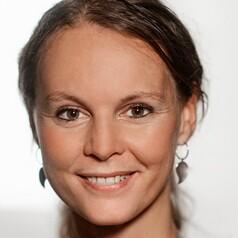
Laura Vang Rasmussen
Associate Professor, University of Copenhagen
Laura Vang Rasmussen is an Associate Professor at the Department of Geosciences and Natural Resource Management, University of Copenhagen in Denmark. She holds a PhD in geography from 2013. She is interested in understanding and seeking solutions to the global challenge of feeding the world while conserving nature at the same time. She has pursued this research field in a number of different contexts and countries, particularly in Africa. She is currently leading an ERC starting grant focused on how wild foods can contribute to people’s dietary quality.
Less ![]()
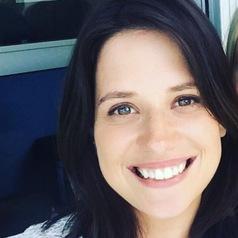
Laura Wajnryb McDonald
PhD candidate in Criminology, University of Sydney
Laura Wajnryb McDonald is a PhD candidate in the School of Social and Political Sciences at the University of Sydney. Her research explores the way people bereaved through homicide navigate and manage media reporting in the digital age.
Less ![]()
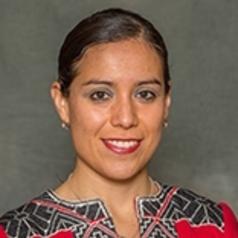
Laura Y. Cabrera
Associate Professor of Neuroethics, Penn State
Laura Cabrera's interests focus on the ethical and societal implications of neurotechnology and neuroscientific advances. She has been working on projects that explore the media coverage and the attitudes of the general public toward pharmacological and novel neurosurgical interventions for the treatment of psychiatric disorders. She has also worked on the public perceptions towards the use of different modalities of neuromodifiers for enhancement purposes, as well as their normative implications.
Her current work also focuses on the responsible governance of neurotechnology.
Less ![]()

Laura Zaurín Paniagua
Docente e investigadora Grado en Enfermería Universidad San Jorge, Universidad San Jorge
Enfermera y terapeuta ocupacional; doctoranda en Ciencias de la Salud. Experta Universitaria en Urgencias y Emergencias. Máster en Investigación en Ciencias de la Salud. A lo largo de su carrera profesional ha compaginado la labor asistencial con la docente y gestora en distintas entidades de carácter privado. Como profesora e investigadora de la Escuela Aragonesa de Cuidados de la Salud, ha impartido distintas formaciones de interés sanitario. Tiene una amplia experiencia en el sector de la enseñanza; durante más de dos décadas ha impartido cursos de distintas materias fundamentalmente al colectivo de enfermería y TCAE. Su línea de investigación está centrada en el análisis de las competencias emocionales en los alumnos de grados de Ciencias de la Salud. Actualmente es la decana de la Facultad de Ciencias de la Salud de la Universidad San Jorge y docente del claustro del Grado en Enfermería donde imparte, entre otras, docencia en la asignatura “Enfermería del Ciclo Vital: Cuidados del Anciano” y en el “Máster en Enfermería de Urgencias, Emergencias y Críticos”.
Less ![]()
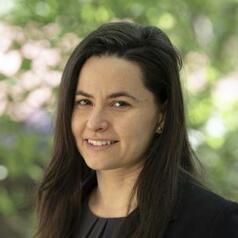
Laure Brimbal
Assistant Professor of Criminal Justice and Criminology, Texas State University
Dr. Brimbal's research interests lie at the intersection of psychology and the criminal justice system, specifically policing. Her focus is on interviewing and issues such as how to build rapport to overcome resistance and how to use evidence in an interview to improve lie-detection accuracy. She has also examined broader issues of decision-making in investigations, evaluating the effectiveness of training approaches, and integrating research and practice.
Less ![]()

Laure Poncet
Research officer, UNSW Sydney
Laure Poncet is a research officer and science communicator at the ARC Centre of Excellence for Climate Extremes.
Less ![]()

Laureen Snider
Professor Emerita, Department of Sociology, Queen's University, Ontario
Laureen's research has focused on Crimes of the Powerful and the laws, norms and regulations that are responsible for enforcing, disciplining and punishing corporate criminals. She has published articles on stock market enforcement and crime, tax evasion, environmental crime and crimes against workers, looking at how the increased power of business (especially multinational corporations) under neoliberal globalized capitalism has weakened laws against corporations and made enforcement weak to non-existent in many international arenas.
Less ![]()

Laurel Fox
PhD candidate, The University of Queensland
Laurel Fox is a PhD candidate in the University of Queensland Law School.
She researches the legal, political and institutional history of national Indigenous representative bodies in Australia.
Less ![]()
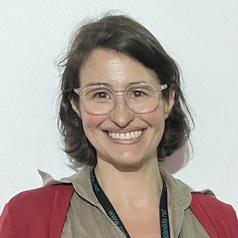
Laurel Mimmo
Honorary Post-doctoral Fellow, Macquarie University
Laurel Mimmo holds a PhD in health services research (UNSW) and and was an inaugural Maridulu Budyari Gumal (MBG) SPHERE translational research fellow (2019-2022). In addition, Laurel has a Master of Public Health, Master of Health Management, with over 24 years’ experience working in paediatric healthcare, including 15 years’ clinical paediatric experience as a registered nurse. Laurel’s research interests include reducing inequities in healthcare quality and safety experiences for children with intellectual disability in hospital, using an inclusive, strengths-based approach, and promoting paediatric nurse-led research.
Less ![]()
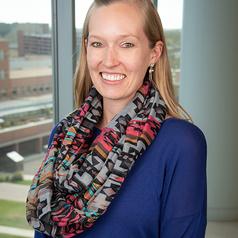
Laurel Niep
Bilingual Trauma Therapist, University of Colorado Anschutz Medical Campus
I am currently working as a Bilingual Trauma Therapist and Senior Instructor with the Stress, Trauma, Adversity Research, and Treatment (START) clinic at the CU School of Medicine in the Department of Psychiatry. I hold a BA in Psychology and Spanish from the University of Denver and a Master of Social Work (MSW) from the University of Denver - Graduate School of Social Work. My professional background comes from years of service as both direct care staff and a therapist in residential treatment, as well as community-based and school-based services. I specialize in working with adolescents and folks who have experienced all types of trauma. I also serve as an expert witness for criminal and civil cases regarding trauma and domestic violence.
Less ![]()

Laurel Ofstein
Faculty Director, Burgess Institute for Entrepreneurship and Innovation, Michigan State University
Laurel Ofstein is Faculty Director of the Burgess Institute for Entrepreneurship and Innovation and Associate Professor-Fixed Term in the Department of Management. Prior to coming to Michigan State University, Dr. Ofstein was Associate Professor of Management at Western Michigan University, Director of the Center for Entrepreneurship and Innovation, and Operations Director of the student business accelerator. Her research examines creativity, innovation and strategy within ecosystems, specifically entrepreneurial teams, organizations, and incubators. Most recently, her research focuses on social entrepreneurship, both within an incubator setting, as well as within the community through cross-sector social partnerships. She recently concluded an academic sabbatical during which she researched community-based incubators focused on poverty alleviation and economic development and the financial and social challenges associated with these efforts.
Dr. Ofstein recently co-authored a white paper on growth strategies of successful women entrepreneurs in partnership with Babson College and Bank of America. Her research has been published in several academic journals, including the International Small Business Journal, the Journal of Small Business and Enterprise Development, and the International Journal of Management Education.
Dr. Ofstein has taught courses at both the graduate and undergraduate levels on entrepreneurship, family business, and strategy at Western Michigan University, the University of Illinois at Chicago, and DePaul University. She has presented her research locally, nationally and internationally at academic and practitioner-focused conferences.
Before entering academia, Dr. Ofstein was a consultant in the financial services industry at Accenture, helping several Fortune 500 companies to streamline their financial processes and operations. She was also a Consulting Manager for a risk management company. Following her MBA degree at DePaul University, Dr. Ofstein served as the Assistant Director to the university’s Center for Creativity and Innovation and taught as adjunct faculty before pursuing her Ph.D. at the University of Illinois at Chicago.
Dr. Ofstein is a reviewer for several peer-reviewed entrepreneurship journals and has conducted editorial reviews of academic textbooks. She has not only published in academic journals, but also co-authored the book, Women in Business: The Changing Face of Leadership, as well as a related book chapter in the book, Gender, Race and Ethnicity in the Workplace.
Less ![]()
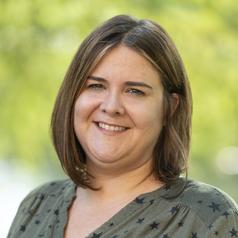
Lauren Butler
Assistant Professor of Nutrition, Texas State University
Lauren Butler is a Registered Dietitian Nutritionist and serves as an Assistant Professor in the Nutrition and Foods Program at Texas State University. Butler holds a doctoral degree in Nutrition from the University of North Carolina at Chapel Hill Gillings School of Global Public Health, where she was trained as a nutrition epidemiologist.
Butler completed postdoctoral work with the University of Florida’s Health Disparities Research and Intervention Program, where she conducted community- engaged research and interventions. Butler’s research aims to advance social justice and health equity through weight-inclusive and non-diet behavioral health interventions. She utilizes a mixed methods systems-approach to develop population-specific strategies to eliminate weight stigma, heal body image and disordered eating behaviors, and improve cardiometabolic health among marginalized communities. Butler leads the Food Freedom Research Team through which she mentors graduate and undergraduate students to address internal and external fatphobia, healthism, ableism, racism, weight bias and mental health stigma. Her recent work includes understanding perspectives on using a weight-inclusive approach to address body image concerns and disordered eating among LGBTQ+ community members.
Less ![]()
- Market Data















